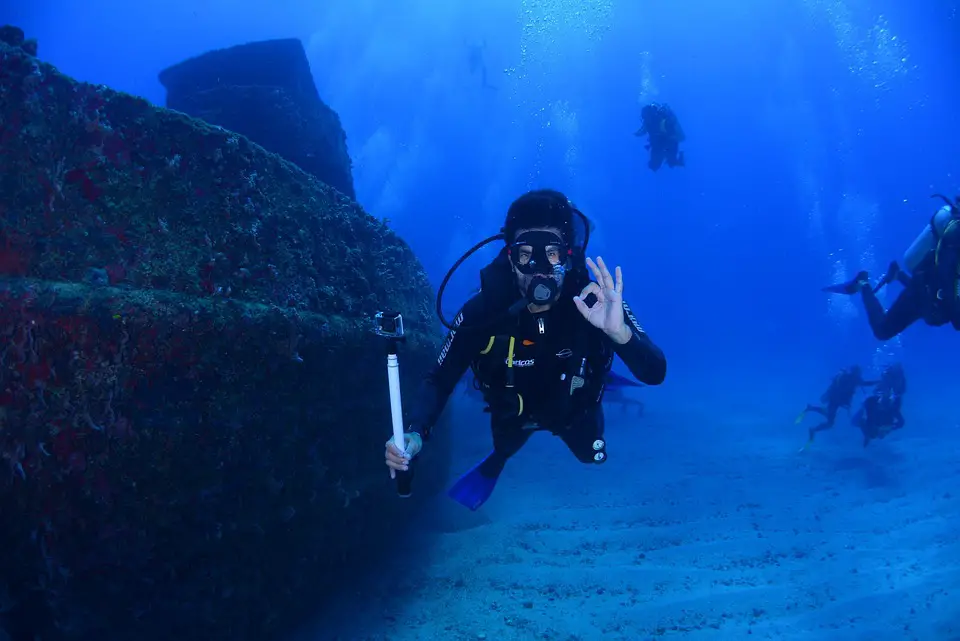Table of Contents
Introduction
Scuba diving is a thrilling and adventurous water sport that allows individuals to explore the wonders of the underwater world. Whether you are a novice or an experienced diver, there is always room for growth and improvement in this exciting realm. This article will guide you on the journey from novice to pro in mastering the art of scuba diving.
Understanding the Basics
Before delving into the depths, it is essential to understand the basics of scuba diving. This includes knowledge of equipment, breathing techniques, and safety protocols. Proper training from a certified instructor is crucial in building a strong foundation, learning about the gear, and mastering essential skills. By immersing yourself in theoretical knowledge and practical exercises, you will gain confidence and ensure a safe diving experience.
Building Experience
Scuba diving is a skill that gets better through practice. The more dives you undertake, the more comfortable and proficient you become. Start with shallow dives and gradually progress to deeper waters. Explore various dive sites, learn about marine life, and discover different underwater environments. Each dive presents unique challenges and opportunities for growth, enabling you to become a well-rounded diver.
Perfecting Buoyancy Control
One of the key elements in becoming an expert scuba diver is mastering buoyancy control. Buoyancy control allows divers to float effortlessly in the water, maintaining neutral buoyancy, or adjusting their position as required. Practice perfecting your buoyancy by adjusting your weight system, breathing patterns, and body positioning. This will not only enhance your diving experience but also minimize damage to fragile marine ecosystems.
Advanced Techniques and Specializations
Once you have established a firm foundation in scuba diving, consider expanding your skillset with advanced techniques and specializations. Specialized courses such as deep diving, night diving, wreck diving, and underwater photography open up new avenues for exploration and excitement. Each specialized course will enhance your abilities and broaden your understanding of the underwater world.
Network and Learn from Experts
Networking and seeking guidance from experienced divers can significantly contribute to your growth as a scuba diver. Participate in dive clubs, workshops, and forums that connect you with a community of passionate divers. Learn from their experiences, gather practical tips, and stay updated with the latest advancements in the diving industry. Building connections with experts will further fuel your learning and professional development.
Conservation and Responsible Diving
As you progress from a novice to a pro, it is essential to develop a deep sense of responsibility towards the environment. Engage in environmentally friendly diving practices, adhere to local regulations, and promote sustainable diving. Participate in underwater cleanups, reef restoration projects, and educational initiatives. By actively contributing to conservation efforts, you play a vital role in preserving the beauty of our oceans for future generations.
FAQs
1. How long does it take to become a certified scuba diver?
The duration to become a certified scuba diver depends on various factors, such as the training agency, your commitment, and the course structure. Typically, it takes 2-4 days for a basic open water certification. However, progressing to higher levels of certification may require additional training and experience.
2. Can anyone go scuba diving?
While scuba diving is accessible to most individuals, it is essential to meet certain physical and medical requirements. A basic level of swimming ability, good overall health, and no significant medical conditions that might be worsened by diving are some of the prerequisites. It is recommended to consult a diving physician if you have any concerns or pre-existing medical conditions.
3. Is scuba diving dangerous?
Scuba diving, like any adventure sport, carries inherent risks. However, with proper training, adherence to safety protocols, and responsible diving practices, the risks can be minimized significantly. It is crucial to stay within your training and experience limits, maintain equipment properly, and always dive with a buddy to ensure a safe and enjoyable experience.
4. Can I dive without certification?
It is highly recommended to obtain proper scuba certification before attempting to dive independently. Certification courses equip you with essential skills, knowledge, and safety procedures required to dive safely. Diving without certification not only puts your own safety at risk but also increases the potential for damage to marine ecosystems.
5. How can I become a professional scuba diver?
Becoming a professional scuba diver involves progressing through various certification levels, such as Rescue Diver, Divemaster, and Instructor courses. Each level requires a certain amount of training, experience, and mastery of skills. Working closely with a reputable diving organization or training facility, you can embark on the path to becoming a professional scuba diver.




